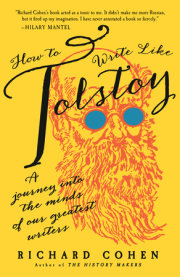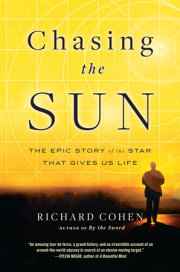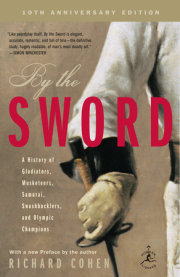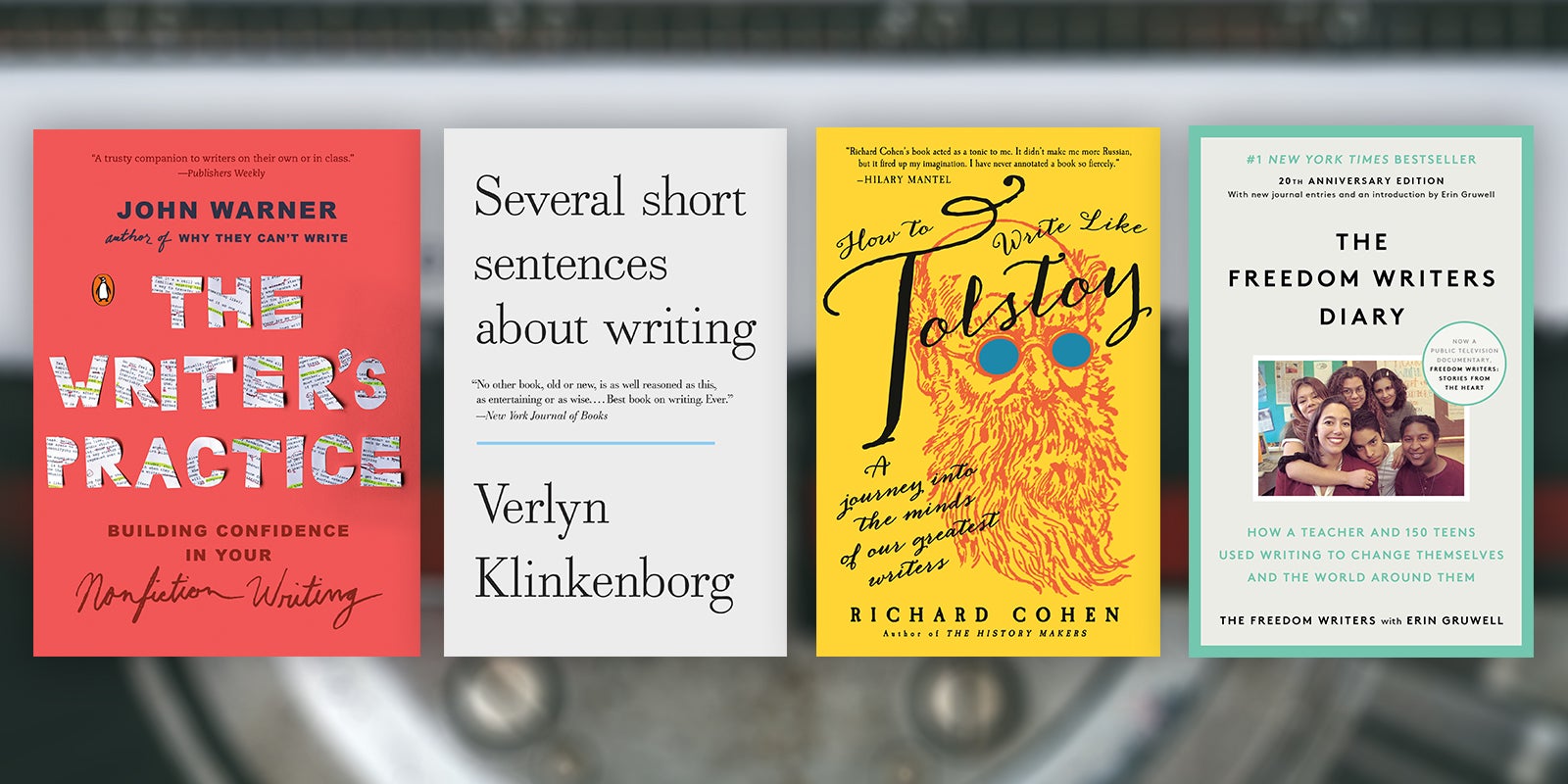CHAPTER 1
Grab, Invite, Beguile: Beginnings
LEONARD: So what were we talking about?
KATE: The first sentence.
LEONARD: Oh yeah, Christ.
THERESA REBECK, SEMINAR, 2011
Into the face of the young man who sat on the terrace of the Hotel Magnifique at Cannes there had crept a look of furtive shame, the shifty hangdog look which announces that an Englishman is about to speak French.
P. G. WODEHOUSE, OPENING OF
THE LUCK OF THE BODKINS, 1925
How to begin? I’m thinking of that moment when a writer stares at a sheet of blank paper (or, today, a screen) like a weightlifter assessing a massive dumbbell; the effort of setting down any mark seems beyond him. A cup of coffee is appealing—a second cup, a quick session of emailing, a short walk, even a phone call. After all such procrastinations, a final inspiration: Focus instead on something completely different to what was planned, and likely far better. What was it Douglas Adams said? “I love deadlines. I love the whooshing sound they make as they fly by.”
Gertrude Stein liked to look at cows in the intervals of her writing, and would be driven into the countryside to do so. Woody Allen takes constant showers to aid inspiration. Those grandes dames of postwar British fiction, Iris Murdoch and Muriel Spark, never set pen to paper until they had thought of a satisfactory opening. “A novel is a long job,” Murdoch explained, “and if you get it wrong at the start you’re going to be very unhappy later on.” John Irving, on the other hand, begins each of his novels by writing the book’s final sentence.Before he starts to write, George Steiner, the polymath and novelist, takes a page of “top prose” in the relevant language and reads it aloud, often until he knows it by heart. “But it will have nothing to do with the subject.” In The Plague Albert Camus has his character Joseph Grand rewrite the first sentence of his novel eternally, with only minimal variations.
Beginnings are notoriously difficult. E. L. Doctorow tells of being asked by his daughter to give her an absence note for her schoolteacher. He started to write, then thought, “No, that’s not it,” and started again. The second version didn’t hit the required note either. Further drafts followed, until his young daughter was in a state of panic and there was a pile of crumpled pages on the floor. Finally his wife came in and, with a look of disbelief, dashed off the required short letter. Doctorow concluded: “I had been trying to write the perfect absence note. It was a very illuminating experience. Writing is immensely difficult. The short forms especially.”
He is hardly alone. The American wit of the interwar period, Robert Benchley, was at his typewriter at The New Yorker agonizing over how to begin. He got up, talked with some friends, and an hour later returned to his desk. He gathered his thoughts once more and typed out the single word “The.” Then he left for a party that was in full flow down the hall, but conscience forced him back. He sat down, focused again, and typed three more words, “. . . hell with it.” With that he returned to the revelers.
In A. A. Milne’s Winnie-the-Pooh, Christopher Robin’s unnamed narrator starts his tale with the words, “Once upon a time, a very long time ago now, about last Friday. . . .” When that time is, exactly, is not generally the issue: All that matters is that we are about to escape into a world of make-believe.
The phrase “Once upon a time” can be traced to as early as 1380; not until 1600 did it become a stock opening for oral narratives. It occurs in other languages too, from the familiar to the more obscure: In Estonian it’s “Behind seven lands and seas there lived. . . .” In classical Arabic, it translates as “There was, oh what there was, in the oldest of days and ages and times. . . .” In Iraqw, a tongue used in Tanzania, it’s “I remember something that our father told me. . . .”
That reliance is a storyteller’s trope, a device to indicate that one is entering a land of make-believe, assuring the reader’s passage from the real world to the fictional. (In the 1890s, Robert Graves’s father would start any story he told to his children with “And so the old gardener blew his nose on a red pocket handkerchief. . . .”) But where and when does the narrative proper begin? The difficulty of openings has haunted many authors, as if they need to clear the air (or their throats) before they get going. Graham Greene begins The End of the Affair (1951) with almost an apology: “A story has no beginning or end; arbitrarily one chooses that moment of experience from which to look back or from which to look ahead.”
An additional burden is the thought of all those weightlifters who have gone before you. Early in his novel The English Patient, Michael Ondaatje argues: “Many books open with an author’s assurance of order. One slipped into their waters with a silent paddle. . . . But [unlike works of nonfiction] novels commenced with hesitation or chaos. Readers were never fully in balance. A door a lock a weir opened and they rushed through, one hand holding a gunnel, the other a hat.” Yet novels can begin slowly—from Oscar Wilde’s The Picture of Dorian Gray in 1890 to Arundhati Roy’s The God of Small Things (1997), we get openings all about the weather.
Equally, nonfiction books can start with a bang or a memorable phrase—take the opening page of Isadora Duncan’s autobiography, which contains the sentences “My first memory is of a fire. I remember being thrown into the arms of a policeman from an upper window.” But a work of nonfiction is often specific—one knows, more or less, what one is getting; whereas a novel competes with all the other fictions that have ever been written.
Only one book could ever open: “In the beginning [bereshit, in the original Hebrew] was the Word, and the Word was with God, and the Word was God.” Around the first century a.d., the pagan sometimes known as “Pseudo-Longinus” wrote in On the Sublime that this was a superb beginning, for its author “both understood and gave expression to the power of the divinity as it deserved.” Another biblical scholar has judged “In the beginning” as “the most wholly satisfactory opening any story can have.” But the question is, not just how to begin a story but how do you get someone’s attention?
In Laughing Gas (1936), P. G. Wodehouse’s farcical take on Hollywood, the entire opening scene is given up to . . . what an opening scene should be. Reggie Havershot, a Bertie Wooster–like character, is trying his first attempt at fiction when he comes across a friend (who he all too slowly realizes is suffering from the father of all hangovers), to whom he insists reading the start of his projected novel. After the friend has listened to a painfully awful rendering, he comments: “The first rule in telling a story is to make it thoroughly clear at the outset who’s who, when, where, and why. You’d better start again at the beginning.”
There’s good sense in this, but does it force us to continue reading? The great Agatha Christie starts off The Murder on the Links (1923) by making that problem her solution:
I believe that a well-known anecdote exists to the effect that a young writer, determined to make the commencement of his story forcible and original enough to catch and rivet the attention of the most blasé of editors, penned the following sentence:
“ ‘Hell!’ said the Duchess.”
Strangely enough, this tale of mine opens in much the same fashion. Only the lady who gave utterance to the exclamation was not a duchess. . . .
And off she goes. With the very next paragraph who should enter but Hercule Poirot, and all’s well with the world.
Individual authors must select which style suits their purpose to establish voice, range of vocabulary, syntactic habits, and so on; each opening also makes a promise about the story that is to come—it establishes expectations.
Christie’s lightly swearing duchess belongs to a category of opening that I call “grabbers”—deliberate attempts to seize the reader with a first sentence or perhaps first paragraph. Typical of this would be the start of most Elmore Leonard thrillers—the wish to show, at once, that this story is going to thrill. His 1985 novel Glitz opens: “The night Vincent was shot he saw it coming.” And again, three years later, Freaky Deaky:
Chris Mankowski’s last day on the job, two in the afternoon, two hours to go, he got a call to dispose of a bomb.
The next sentence introduces us to “a guy by the name of Booker, a twenty-five-year-old super-dude twice-convicted felon,” who is in his Jacuzzi when the telephone rings, so he gets out and moves to his favorite seat, a green leather wingback chair, only to be told by the caller that he is sitting on a bomb, and getting up will set it off.
Not only suspense stories can begin with “grabbers.” When Gabriel Garcia Márquez read The Metamorphosis, the first line of which runs: “As Gregor Samsa awoke that morning from uneasy dreams, he found himself transformed in his bed into a gigantic insect,” the sentence “almost knocked me off the bed. I was so surprised. . . . I thought to myself that I didn’t know anyone was allowed to write things like that.”
A good opening sentence not only leads one on, it enables the author to introduce character, mood, setting. In Brighton Rock (1938), Graham Greene starts dramatically enough:
Hale knew they meant to murder him before he had been in Brighton three hours.
The rest of the paragraph deftly sets the scene:
With his inky fingers and his bitten nails, his manner cynical and nervous, anybody could tell he didn’t belong—belong to the early summer sun, the cool Whitsun wind off the sea, the holiday crowd. They came in by train from Victoria every five minutes, rocked down Queen’s Road standing on the tops of the little local trams, stepped off in bewildered multitudes into fresh and glittering air: the new silver sparkled on the piers, the cream houses ran away into the west like a pale Victorian water-colour; a race in miniature motors, a band playing, flower gardens in bloom below the front, an aeroplane advertising something for the health in pale vanishing clouds across the sky.
In a sense, every good opening is a “grabber,” in that its author wants the reader to keep turning the pages; as the garrulous shoemaker who narrates the Czech novelist Bohumil Hrabal’s Dancing Lessons for the Advanced in Age (1964) says, “No book worth its salt is meant to put you to sleep, it’s meant to make you jump out of bed in your underwear and run and beat the author’s brains out.”
The famous beginning of David Copperfield (1850)—“Whether I shall turn out to be the hero of my own life, or whether that station will be held by anybody else, these pages must show”—comes into a “grabber” subcategory, that of “Here I am!”
Something similar is true also of Ralph Ellison’s “I am an invisible man” (1952), or the beginnings of Robinson Crusoe (1719), even Huckleberry Finn (1885), Saul Bellow’s Herzog (1964), or Dodie Smith’s I Capture the Castle (1948)—“I write this sitting in the kitchen sink”—or the opening to Harper Lee’s Go Set a Watchma: “Since Atlanta, she had looked out the dining-car window with a delight almost physical.” It’s not a matter of the information given so much as the self-confidence of the narrator announcing him- or herself as the center of the story.
If there is a danger here, it’s of the reader identifying the narrator with the author. “I’ve had the misfortune,” wrote Marcel Proust, “of beginning a book with the word ‘I’ and immediately it was thought that instead of attempting to discover general laws, I was analyzing myself in the individual and detestable sense of the word.” However, it remains a powerful way of beginning a tale, and the use of a fictitious “I” does force the reader into a semblance of dialogue with the narrator.
Close to this approach but significantly different in intention and effect is the beginning that tries to shock. Tom Robbins starts Villa Incognito with: “It has been reported that Tanuki fell from the sky using his scrotum as a parachute.” Iain Banks begins The Crow Road (1992): “It was the day my grandmother exploded.” These are examples of grandstanding, the writer as show-off. Authors can forget that they have to go on after the opening sentence, and anticlimax can result. Thomas Mann begins Buddenbrooks, his first novel, “And—and—what comes next?” and continues with a second character replying, “Oh, yes, yes, what the dickens does come next?” A rare Mann joke.
Stephen King starts The Shining with “Jack Torrance thought: Officious little prick.” In context, this is effective, but the opening to Victoria Glendinning’s first novel, The Grown Ups (1989), runs: “There’s more to loving than fucking.” I was her editor and didn’t question it; only after the book was published did we both agree that that first sentence drew the wrong attention to itself. Not that outrageous openings can’t work. Quirky can be good: Mikhail Bulgakov begins The Heart of a Dog (1925), “Ooow-ow-ooow-owow!” as if language itself has failed him, and Tom Wolfe, in The Bonfire of the Vanities (1987), early on the opening page gives us a long drawn-out cackle: “Heh-heggggggggggggggggghhhhhhhhhhhhhhh.”
Garrison Keillor put such attempts in fine context. “When someone gets in your face as a writer does, either you love him or you loathe him,” he wrote, citing a memoir he was reading of two lesbians who had taken up farming sheep in Minnesota. It begins with them attending shepherd school and learning to assess the potency of a ram by holding his testicles. “A book that starts with a woman reaching up between a ram’s hind legs is a book close to my heart.”
In his introduction to a reissue of Double Star, the science fiction writer Robert Heinlein talks about “the narrative hook . . . not the annoying kind that shouts for attention, but the kind that engages your curiosity and makes you want to read the next line.” This takes us to a clutch of beginnings that I group under the heading of “invitational,” well rendered in the classic German beginning, “At the turn of the century, in the province of D——.” Such openings do not attempt to seize our attention but slowly, courteously almost (cortesia, tact of heart, a welcome), invite us inside their world. It’s interesting, you’ll find much to involve you here; please make the effort.
Copyright © 2016 by Richard Cohen. All rights reserved. No part of this excerpt may be reproduced or reprinted without permission in writing from the publisher.





